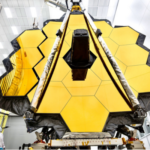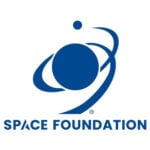Space Foundation Press Releases
Space Foundation White Paper: Space Technology Saves Lives
Written by: developer
 COLORADO SPRINGS, Colo. (Oct. 4, 2010) — Data gathered by remote sensing satellites can save lives when used to develop models that predict areas at risk for disease outbreaks. That’s the message of the latest white paper from the Space Foundation, Solutions from Space: Disease and Pandemic Early Warning, which details how space technology has the potential to predict outbreaks of preventable diseases such as malaria and cholera.
COLORADO SPRINGS, Colo. (Oct. 4, 2010) — Data gathered by remote sensing satellites can save lives when used to develop models that predict areas at risk for disease outbreaks. That’s the message of the latest white paper from the Space Foundation, Solutions from Space: Disease and Pandemic Early Warning, which details how space technology has the potential to predict outbreaks of preventable diseases such as malaria and cholera.
According to the paper, early warnings can help decision makers distribute preventive medicine and other forms of aid to save lives. Although remote sensing satellites cannot directly detect disease outbreaks, they are able to detect a wide range of environmental factors, such as ground water, vegetation or flooding, that contribute to the spread of diseases.
“Before a model can be developed, a link must be found between environmental factors and the outbreak of a disease,” said Space Foundation Research Analyst Mariel John, who presented the paper last week at the 61st International Astronautical Congress in Prague, Czech Republic.
“Malaria, which is spread by mosquitoes, is a good example. Mosquitoes are often more prevalent when there is a greater amount of surface water,” said John. “Increased surface water or rainfall which can be detected by remote sensing satellites, represent a possible predictor for an outbreak of malaria in regions where the disease is known to exist.”
In addition to explaining how remote sensing can predict disease outbreaks, the paper details global interest in space-based disease detection. In the United States, NASA, the Department of Defense (DoD) and the Centers for Disease Control and Prevention have ongoing research programs studying the link between remote sensing data and disease. The European Space Agency’s Epidemio project aims “to provide Earth observation-derived information on the environment to epidemiologists working to study, monitor and predict threats to human health.” The Canadian Space Agency, in cooperation with Kenya’s National Malaria Control Program, funded the demonstration of Earth observation technology for identifying natural mosquito habitats and predicting malaria risk in Africa. International organizations such as the United Nations, the World Health Organization and the Group on Earth Observations are also involved in this effort.
In a 2004 report, the World Health Organization noted that prevention of a number of diseases, including malaria, cholera, diarrheal diseases, meningococcal meningitis, leishmaniasis, African trypanosomiasis, dengue fever, St. Louis encephalitis, Rift Valley fever, Ross River virus, Murray Valley fever and Lyme disease, can potentially benefit from environmental prediction models. These diseases affect populations all over the world, and all could benefit from climate-based prediction models.
To read Solutions from Space: Disease and Pandemic Early Warning or to download a copy, go to www.SpaceFoundation.org/research.
About the Space Foundation
The Space Foundation is an international, nonprofit organization and the foremost advocate for all sectors of the space industry – civil, commercial, military and intelligence. Founded in 1983, the Space Foundation is a leader in space awareness activities, educational programs that bring space into the classroom, and major industry events, including the National Space Symposium, all in support of its mission “to advance space-related endeavors to inspire, enable and propel humanity.” An expert in all aspects of the global space industry, the Space Foundation publishes The Space Report: The Authoritative Guide to Global Space Activity and provides three indices that track daily performance of the space industry. Through its Space Certification and Space Technology Hall of Fame® programs, the Space Foundation recognizes space-based technologies and innovations that have been adapted to improve life on Earth. Headquartered in Colorado Springs, the Space Foundation conducts research and analysis and government affairs activities from its Washington, D.C., office and has field representatives in Houston, Texas, and Cape Canaveral, Fla. For more information, visit www.SpaceFoundation.org. Follow us on Twitter, Facebook and LinkedIn, and read about the latest space news and Space Foundation activities in Space Watch.
# # #


